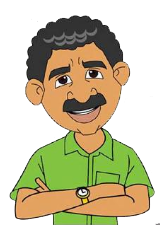Among Amparo Gonzalez Espartero’s many childhood memories, one stands out: her grandmother’s house, brimming with gadgets like microscopes and colorimeters and a scientific library where she spent hours immersed in works from Charles Darwin to Albert Einstein. It had all belonged to her grandfather, a pharmacist who ran a laboratory near Cadiz, on Spain’s southern Atlantic coast.
Like most kids, Gonzalez Espartero was a scientist by nature: exploring, experimenting, always asking questions. She continues to use those methods in her role as Unit Head of Spent Fuel Management in the IAEA Department of Nuclear Energy, focusing on the storage, reprocessing and recycling of spent nuclear fuel, the transport of nuclear materials and advanced fuel cycles related to innovative reactors.
“When I was a child, I would ask myself questions like: Why does water change its physical form, how does the sky turn red, why are some materials flexible and others not?” said Gonzalez Espartero. “This natural curiosity is what motivated me to pursue science in school and as a career—and remains at the heart of my own scientific journey today.”
The IAEA is highlighting the stories of female scientists like Gonzalez Espartero as part of its drive for a more inclusive workforce where both women and men can contribute to the peaceful uses of nuclear science and technology, which helps tackle challenges from climate change and food security to COVID-19. To this end, the IAEA has launched the Marie Skłodowska-Curie Fellowship Programme to encourage women to pursue such careers and become leaders in nuclear science and technology.
Gonzalez Espartero’s scientific journey began at her family home.
While her mother never had a chance to attend university, she encouraged her three sons and daughter to put education first. Her father, a major in the Military Medical Corps and a nurse in civil life, inherited her grandfather’s devotion to science, which he passed on to Gonzalez Espartero.
Gonzalez Espartero studied analytical chemistry at the Autonomous University of Madrid. She began her career in 1991 at the Centre for Energy, Environment and Technology (CIEMAT) on a team supporting the Spanish Radioactive Waste Management Organization (ENRESA).
While at CIEMAT, Gonzalez Espartero participated as a researcher in European projects on hydrometallurgical processes for recycling minor actinides (chemical elements that accumulate in nuclear fuel) for innovative nuclear power reactors. Such recycling reduces the radiotoxicity and heat generation of the nuclear waste to be disposed of. Gonzalez Espartero served in leadership roles in two of these projects, coordinating teams from more than 10 European institutions.
In 2011, she was appointed Scientific Secretary of the Spanish Alliance for Research and Innovation in Energy Technologies (ALINNE), a public-private initiative established by the Ministry of Science and Innovation to support Spanish international leadership in the field of energy innovation.
While still working at CIEMAT, Gonzalez Espartero also obtained her Ph.D. in Analytical Chemistry - spending evenings and weekends in the lab conducting research.
Jose Antonio Gago, who worked with Gonzalez Espartero during his time at ENRESA and is now General Manager and CEO of Spain’s Asociacion Nuclear Asco-Vandellos II, described her personality as “the perfect mix of youthful enthusiasm, self-confidence, rigor and sense of humor”.
During a 2008 work trip to Japan, Gonzalez Espartero surprised everyone at a gala dinner party by showing up in a kimono. She ended up playing Japanese drums with the band. “I’ve always liked singing and dancing as they make all your troubles go away,” said Espartero Gonzalez, who takes ballet lessons in Vienna. “I used to even dance in the lab, wearing full protective clothing.”
Amparo Gonzalez Espartero (right), a top IAEA scientist, enjoys getting to know various cultures and customs. Here she is playing drums in the evening of a technical visit to Japan in 2008.
In 2015, Gonzalez Espartero’s path led her to the IAEA.
With a passion for travel and other cultures, she has embraced the international atmosphere at the Agency as well as the chance to support national nuclear programs. “She is always ready for new jobs and projects, especially if they mean challenges – nothing has ever stopped her and she has time for everything,” said Susana Falcon Cabrera, president of the Spanish chapter of Women in Nuclear (WiN).
At the IAEA, Gonzalez Espartero has led several key projects. She acted as co-scientific secretary of the 2019 International Conference on Spent Fuel Management and is now preparing the International Conference on Fast Reactors in Beijing planned for 2021. Additionally, she is leading the Coordinated Research Project on the management of Severely Damaged Spent Fuel and Corium after Fukushima accident. She has also led the production of an IAEA e-Learning Course for young professionals on Spent Fuel Storage launched in April 2020.
Gonzalez Espartero, who has mentored several female professionals, encourages young women to pursue careers in the nuclear field. In 2019, she organized a round table discussion on the challenges facing nuclear energy with five women professionals at the WiN Global Annual Conference in Madrid. Still, she remains puzzled that there are still significantly fewer women in science, technology, engineering and mathematics (STEM) than in other fields, as boys and girls usually receive the same education at school.
Unfortunately, whether due to stereotypes or a lack of role models, many girls end up being discouraged from pursuing STEM careers. “That is why it is especially important to nurture this spirit of curiosity from a young age, just as my family did for me,” said Gonzalez Espartero, who makes a point of encouraging and inspiring young people to pursue their scientific dreams.
Just like she did in her grandfather’s library.
“She always leads by example, showing that hard work pays off and that passion and dedication for your job go a long way,” said Anastasia Lazykina, who interned under Gonzalez Espartero at the IAEA. “She made sure my voice was heard and that I got the chance to present my opinion, to have a seat at the table.”
Wednesday, October 7, 2020




